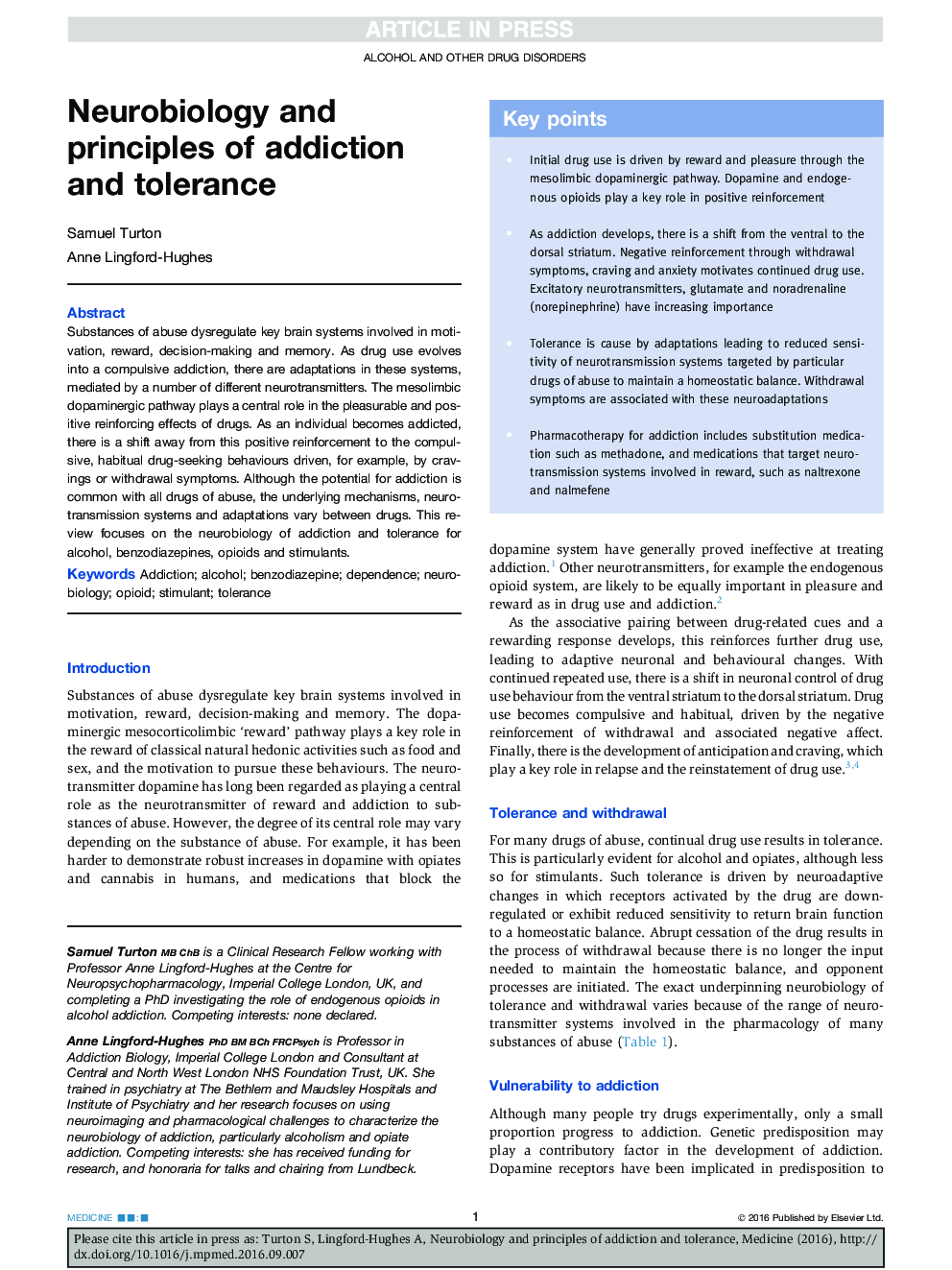| Article ID | Journal | Published Year | Pages | File Type |
|---|---|---|---|---|
| 5681230 | Medicine | 2016 | 4 Pages |
Abstract
Substances of abuse dysregulate key brain systems involved in motivation, reward, decision-making and memory. As drug use evolves into a compulsive addiction, there are adaptations in these systems, mediated by a number of different neurotransmitters. The mesolimbic dopaminergic pathway plays a central role in the pleasurable and positive reinforcing effects of drugs. As an individual becomes addicted, there is a shift away from this positive reinforcement to the compulsive, habitual drug-seeking behaviours driven, for example, by cravings or withdrawal symptoms. Although the potential for addiction is common with all drugs of abuse, the underlying mechanisms, neurotransmission systems and adaptations vary between drugs. This review focuses on the neurobiology of addiction and tolerance for alcohol, benzodiazepines, opioids and stimulants.
Related Topics
Health Sciences
Medicine and Dentistry
Medicine and Dentistry (General)
Authors
Samuel Turton, Anne Lingford-Hughes,
